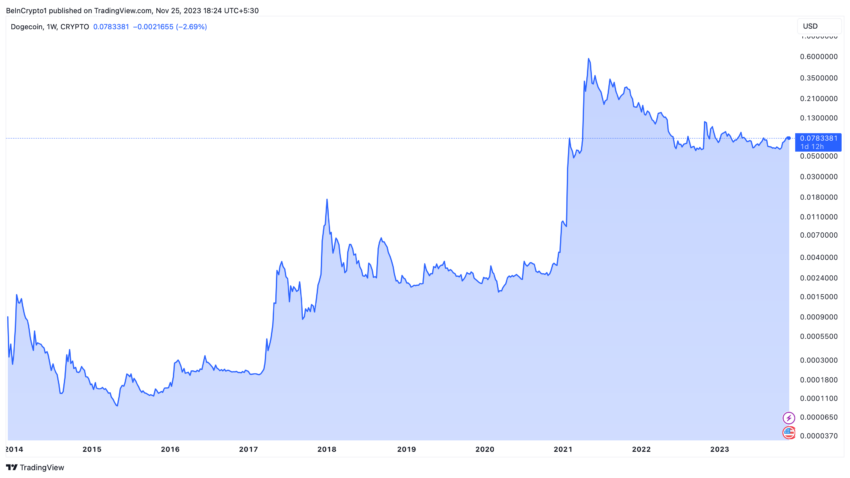How This Filmmaker Made Over $20 Millions Trading Dogecoin

[ad_1]
Carl Erik Rinsch, once a little-known filmmaker, finds himself in a legal tangle with streaming giant Netflix. This clash stems from an ambitious project derailed by bizarre incidents and Rinsch’s unexpected financial windfall from trading Dogecoin.
While Rinsch claims no wrongdoings, Netflix highlights unmet production milestones that led to the failure of the project “Conquest.”
Filmmaker Made Millions With Dogecoin
Rinsch’s journey to the heart of a streaming industry frenzy began with his science-fiction pitch about artificial humans. Despite his rocky history with “47 Ronin,” a film that failed critically and commercially, Rinsch’s idea sparked interest amidst Hollywood’s insatiable content hunger.
Streaming services, expanding rapidly with Disney, Apple, and NBCUniversal joining the fray, were eager for fresh narratives. But Netflix was able to outbid Amazon with an eight-figure offer to Rinsch. The deal included millions of dollars and the rarely granted privilege of the final cut, a testament to the high stakes and fierce competition in the streaming industry.
However, the project named “Conquest,” soon spiraled into chaos. Despite an initial budget of over $55 million, Rinsch failed to deliver a single episode. Instead, Rinsch’s extravagant spending and an obsession with cryptos surfaced.
He reportedly gambled $4 million of his funds from Netflix in Dogecoin, a cryptocurrency initially started as a joke. Dogecoin’s meteoric rise in value turned Rinsch’s fortunes around. His initial investment generated a staggering return, amassing over $20 million.
“Thank you, and god bless crypto,” Rinsch reportedly told a Kraken representative.
Read more: How To Buy Dogecoin (DOGE) and Everything You Need To Know

Netflix, having invested heavily in “Conquest,” now seeks to salvage its resources. The company has entered into confidential arbitration with Rinsch, who alleges a breach of contract and demands $14 million in damages. Netflix, in contrast, denies any liability, highlighting the unmet production milestones by Rinsch.
“After a lot of time and effort, it became clear that Mr. Rinsch was never going to complete the project he agreed to make, and so we wrote the project off,” said Thomas Cherian, a spokesman for Netflix.
This legal battle unfolds against the backdrop of a changing Hollywood, where studios are increasingly pressured to curb extravagant spending and focus on profitability. Once known for its lavish budgets and creative freedoms, the industry faces a reality check, with investor expectations and economic realities clashing with the artistic process.
Disclaimer
In adherence to the Trust Project guidelines, BeInCrypto is committed to unbiased, transparent reporting. This news article aims to provide accurate, timely information. However, readers are advised to verify facts independently and consult with a professional before making any decisions based on this content.
[ad_2]
Source link

